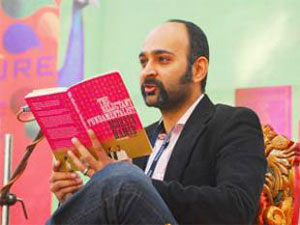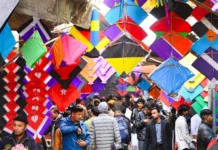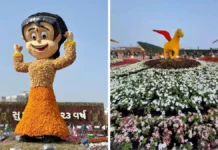
NEW DELHI: It was an action-packed 2013 for literature in India with some exciting titles, controversies and new faces grabbing their own slice of attention.
Indian authors continued to win prestigious awards and get shortlisted for them. Festivals were galore with Jaipur Literature festival leading the way. A number of high-profile authors like Jeffrey Archer, Mohsin Hamid and Aminatta Forna visited India.
The year saw publishers coming out with numerous autobiographies and biographies, and books on titles on business, commercial and mass market fiction, literary fiction, self help, chik-lit and culinary. There were a number of works by new and little-known authors.
According to upcoming author Rahul Saini, whose fourth novel “Paperback Dreams” was published this year, “Everyone is an aspiring author these days. People write and they want to get published quite desperately for their own reasons.”
“It was a year of innovation and discovery, with the launch of Harper XXI, our ebook imprint, and several titles that caught the attention of readers, starting with Anuja Chauhan’s ‘Those Pricey Girls’, through Reza Aslan’s controversial biography of Jesus, titled ‘Zealot’, and ending with Amitabha Bagchi’s wonderful new novel ‘This Place’, about South Asians in an American neighborhood,” says Karthika V.K, Publisher & Chief Editor of Harper Collins Publishers India.
According to Hemali Sodhi, vice president (Marketing and Corporate Communications) of Penguin Group India, “2013 has been an incredibly exciting and rewarding year on all fronts.
We’ve recorded excellent growth, have won awards – both literary and industry (digital marketing), have acquired and published some fantastic authors, and in a rapidly changing marketplace have continued to retain our Number one position.
We have also seen tremendous success in both the commercial and young readers segment.”
Rahul Srivastava, Managing Director, Simon & Schuster India, says, “2013 was a good year for S&S India as we consolidated and improved our market share in Indian market within two years of operations. In 2013, we managed to publish best-sellers like ‘Accidental Apprentice’, ‘Reimagining India’, ‘Hero’, ‘Guide to your best body’, ‘Perks of being a wallflower’ and ‘Dork Dairies’. Indian book industry continues to be in a state of flux but we managed to achieve our targets in terms of sales and profits and are poised to grow the business in 2014.
“We also launched our complete range of eBooks in India through Flipkart.”
Books by former Army chief Gen V K Singh and BJP leader Jaswant Singh were in the news for making new claims.
Singh, whose last days in office was marred by a legal battle with the government in the Supreme Court, sought to drag the Prime Minister’s Office over his age row and the Tatra truck scandal saying a senior bureaucrat there was “orchestrating” the issues.
He claimed in his autobiography “Courage and Convictions” that media appeared to be wanting him out of office after the second hearing in the age case that came as a “big blow”.
But he continued as army chief after he met the then President Pratibha Patil who told him to “carry on with the work you are doing”.
Referring to the controversy relating to the Tatra truck deal, he said the name of a PMO official was “cropping up regularly” and his relatives had been given plots in the BEML complex – the PSU assembling Tatra trucks in India.
He also attacked his predecessor General J J Singh, claiming that he initiated a “look down policy” through which he, along with a few other officers, were “fixed” to clear the way for “an officer of his choice” to take over as the Chief of Army Staff in 2012.
In his new book “India At Risk”, former External Affairs Minister Jaswant Singh contradicted L K Advani, saying the then Home Minister was aware of the controversial decision about his traveling to Kandahar along with three terrorists released in exchange for the hostages of hijacked Indian Airlines plane in 1999.
Singh, however, said Advani along with Arun Shourie were the two ministers who had opposed the decision which he had taken on his own and informed the Cabinet.
Advani had claimed that he was not aware of the decision that Singh was going with the terrorists.
In the book, he writes that the decision to release three terrorists was the “most demanding and emotionally the most draining period of my life”.
Jeet Thayil became the first Indian author to win the DSC Prize for South Asian Literature 2013 for his debut novel “Narcopolis”. Now in its third edition, the USD 50,000 prize along with a unique trophy was given away at the Jaipur Literature festival. He was chosen from a shortlist of six that had India’s Amitav Ghosh and Uday Prakash; Jamil Ahmad and Mohammed Hanif (both from Pakistan) and Tahmima Anam (Bangladesh).
Ten finalists for the 60,000-pound Man Booker International Prize 2013 were also announced during the festival that included U R Ananthamurthy of India. Lydia Davis of the US won the award.
Pulitzer Prize winning Indian-American author Jhumpa Lahiri’s new novel “The Lowland”, a tale of two brothers set in Kolkata of the 1960s, made it to the short lists of both the Booker Prize and the 2013 US National Book Award in fiction but lost out on both.
New Zealander Eleanor Catton became the youngest writer to win the prestigious Booker at 28 for her 832-page novel “The Luminaries”, a murder mystery set during a 19th-century gold rush.
The US National Book Award was won by James McBride for “The Good Lord Bird”, about the journey of a young slave in the 1850s.
At home, the Crossword Book Awards 2013 were given for the best in Indian writing. “Em and The Big Hoom by Jerry Pinto (Aleph)” and “Boats on Land by Janice Pariat (Random House)” jointly won in the Indian Fiction category while “Righteous Republic by Ananya Vajpeyi (Harvard Business Press)” and “From the Ruins of Empire by Pankaj Mishra (Penguin)” jointly won the award for Indian Non-Fiction.
“A Life in Words” by Ismat Chughtai, translated by M Asaduddin (Penguin) was the winner in the Indian language translation category.
“On The Kabab Trail” by restaurateur Manish Gujaral won the Gourmand Cook Books Award for the best foreign cuisine cookbook in India.
Indian-born author Manil Suri bagged this year’s Bad Sex in Fiction Award, a dubious distinction given annually by Britain’s Literary Review. A cosmic-themed threesome in his latest novel, “The City of Devi”, won him the award, whose past winners include illustrious authors such as Tom Wolfe and Sebastian Faulks.
The prize, which is bestowed by the magazine every year since 1993, aims to draw attention to “crude, badly written, or perfunctory use of passages of sexual description in contemporary novels, and to discourage it”. The US-based mathematician-novelist Suri won over the judges with the climax of an extended sex scene involving three characters in the book set in Mumbai under the threat of a nuclear bomb.
The sixth edition of Jaipur Literature Festival, one of the most prestigious literary carnivals of Asia-Pacific, saw nearly 300 authors addressing 175 sessions in five days with approximately 2,00,000 people participating in the sprawling venue Diggi Palace.
Keynote speaker Mahashweta Devi led the list of authors including Commonwealth Prize winner Aminatta Forna from Sierra Leone, Booker Prize winner Howard Jacobson, two Orange Prize winners Linda Grant and Madeline Miller, Ahdaf Soueif, Tahar Ben Jalloun, Sebastian Faulks, Deborah Moggach and Zoe Heller.
The festival this year played host to subjects as diverse as the history of miniature painting and war reporting, Sharia law and gay and lesbian literature, the Jewish novel, the 18th century sexual revolution, detective fiction and literature of 9/11. It focused on new writing from Latin America and Iran, examined the economic prospects of India and looked at the mixed legacy of the British Empire, the decline of America and the rise of China. Bollywood and cricket were other topics of discussion.
There were controversies as well. The Salman Rushdie issue continued to haunt the festival though he did not attend it.
Even before the festival began this year, there were protests from Muslim groups against the inclusion of poet-novelist Thayil as a speaker as he and three other authors had read portions from “The Satanic Verses” last year. But better sense prevailed and the issue ended when the protesters softened their stand and asked the author not to repeat his act.
Then there were the right-wingers who demanded the exclusion of authors from Pakistan in the wake of brutal killing of two Indian soldiers along the LoC. Though Pakistani author Mohammad Hanif could not make it to the festival due to personal reasons, Jamil Ahmad and M A Farooqui attended and participated in their designated sessions.Noted sociologist Ashis Nandy kicked up a storm with his comments on OBCs, SCs and STs. Though he apologized later, he said the comments were taken out of context by the media.
On July 1, publishing giants Penguin and Random House formally merged and Gaurav Shrinagesh was named the head of India operations.
Shrinagesh, previously Managing Director of Random House India, will be CEO of Penguin Random House India. -PTI






